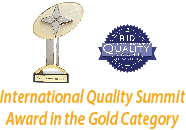
DOCUMENTS | Medicine Documents
A visual guide to breast cancer - Part 3
Targeted Treatments

These newer drugs pinpoint specific things inside cancer cells. For example, women with HER2-positive breast cancer have too much of a protein called HER2. Targeted therapies can stop this protein from making cancer cells grow. These drugs are often used along with chemo because they tend to have milder side effects.
Life After Diagnosis

There’s no doubt that cancer is a life-changing experience. The treatments can wear you out. You may have trouble managing daily chores, work, or social outings. This can make you feel isolated. It’s crucial to reach out to friends and family for support. They may be able to go with you to treatments, help out with chores, or just remind you that you aren't alone. Many people choose to join a support group, either near them or online.
Breast Reconstruction

Many women who have a breast removed choose to get reconstructive surgery. This replaces the skin, nipple, and breast tissue that are lost during a mastectomy. It can be done with a breast implant or with tissue from somewhere else in your body, like your tummy. Some women start the process right after their mastectomy. But you can also get it months or years later.
Breast Forms

Instead of reconstruction, you can be fitted for a breast form. This is a breast-shaped prosthesis that fits inside your bra. Wearing one allows you to have a balanced look when you’re dressed. Like the surgery, breast forms are often covered by insurance.
Breast Cancer: Why Me?

The most obvious risk factor for breast cancer is being a woman. Men get the disease, too, but it’s about 100 times more common in women. Other things that make it more likely include being over age 55 or having a close relative who had the disease. Still, up to 80% of women with breast cancer have no family history of the illness.
Breast Cancer Genes

Some women have a high risk of breast cancer because they got changes, or mutations, in certain genes at birth. The genes most often involved in breast cancer are known as BRCA1 and BRCA2. Women with mutations in these genes have a higher chance of getting breast cancer at some point in life than those who don’t. Other genes may be linked to breast cancer risk as well.
Risk Factors in Your Control

If you’re overweight, get too little exercise, and drink more than one alcoholic beverage a day, you might be more likely to get breast cancer. Birth control pills and some forms of hormone therapy after menopause can also boost the odds. But the risk seems to go back to normal after you stop these medications. Good lifestyle choices can help survivors, too. Research says physical activity can lower the chances your cancer will return. And it's a proven mood-booster, too.
Breast Cancer Research

Doctors continue to search for treatments that work better and are easier to undergo. Funding for this research comes from many sources, including advocacy groups throughout the country. Many of the 2.5 million breast cancer survivors and their families choose to participate in walk-a-thons and other fundraising events. This links each individual fight against cancer into a common effort for progress.
From webMD


